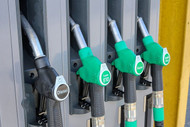Octane Ratings Explained: Essential Tips for Car Refueling
15th Apr 2022

When filling up your vehicle at the pump, you may notice a number on the nozzle. Most gas stations have several nozzles at each pump. Aside from the diesel nozzle, each of these nozzles will likely feature a different number. Known as an octane rating, it represents the grade of gasoline.
What Are Octane Ratings?
Octane ratings are a measurement of a fuel's ability to resist compression without combusting. The higher the octane rating, the more resistant the fuel is to premature combustion.
Combustion, of course, is what powers most automotive engines. Assuming your vehicle has a combustion engine, it will burn a mixture of gasoline and air. With that said, gasoline may combust prematurely. As the gasoline heats up, it may ignite, resulting in combustion. Gasoline with a high octane rating is better protected from premature combustion such as this than gasoline with a low octane rating.
According to the U.S. Energy Information Administration (EIA), gasoline is available in three grades: regular, mid and premium. Regular grade gasoline has an octane rating of about 87. Mid-grade gasoline has an octane rating of 89 to 90. Premium grade gasoline has an octane rating of 91 to 94.
How Octane Ratings Affect Your Vehicle's Performance
Filling your vehicle with high octane gasoline will protect it from knocking. Also known as engine knock, knocking occurs when the gasoline combusts prematurely. It can lead to a knocking sound originating from your vehicle's engine bat. If you hear a knocking sound while driving, the problem could be attributed to your grade of gasoline. Switching to a higher grade gasoline with a higher octane rating may solve the knocking sound.
What octane rating should you choose when filling up your vehicle exactly? Because it represents the grade or overall quality of gasoline, you can expect to pay more for gasoline with a high octane rating. It may cost 10% to 20% more than low-octane gasoline.
To determine an appropriate octane rating, check the owner's manual for your vehicle. Different vehicles require a different octane rating. If your vehicle has a supercharged engine, for instance, it may require a high octane rating.
There's nothing wrong with using a high octane rating. Most automakers only recommend a "minimum" octane rating. Using gasoline with a higher octane rating won't cause any harm to your vehicle; you'll just have to pay more when filling up your vehicle at the pump.

